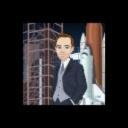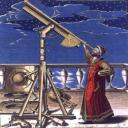Yahoo Answers is shutting down on May 4th, 2021 (Eastern Time) and beginning April 20th, 2021 (Eastern Time) the Yahoo Answers website will be in read-only mode. There will be no changes to other Yahoo properties or services, or your Yahoo account. You can find more information about the Yahoo Answers shutdown and how to download your data on this help page.
Trending News
How does the earth keep spinning?
shouldn’t the earth stop spinning at some point? if you spin a ball it stops spinning, is it because there’s a surface you’re spinning it on and that causes it to stop? and also why doesn’t the sun pull the whole earth towards it, why does the earth stay at a certain distant form the sun and not go into it?
12 Answers
- ?Lv 73 years agoFavorite Answer
You're groping successfully towards the reason! The Earth isn't spinning on something, it's just in space, so there is no friction to slow and stop it. Exactly, if you spin a ball, it will eventually stop because of friction with something else.
Same reason it's actually possible to send spacecraft across the solar system with very little more fuel than just to get them off the Earth. When you drive a car, you have to keep your foot on the gas to keep it moving because of friction in the engine and friction with the road. But in space, once you have your spacecraft off the Earth and going fast enough to escape Earth's gravity, it will just keep going. (Newton's 1st law of motion.) In fact this is what is done! - once it's going at a good speed and pointed in the right direction, all you have to do is switch the engines off and wait. About the nearest equivalent on Earth is to go ice skating. Wet ice has very low friction so once you're going, it's very hard to stop, especially on sharp blades. You've got to do something like swerve your skates and cut into the ice. Or hit the wall around the ice rink!
In fact if you continue to keep the engines firing, the spacecraft will accelerate, not keep at a steady speed. Then whenever it gets to where you want it to go, the only way to slow it down is to have retro-rockets that will fire in the opposite direction - and the faster it's going, the more powerful retro-fire will have to be. Gotta think about it all - if you're not going to need an enormous weight of fuel to launch the thing, you have to keep it light, and to get as many instruments on it as possible, that restricts how much fuel you can take. Have patience to wait for the spacecraft to take longer to get there, and you can put more equipment on it and get more science done.
The Earth started off with spin as the whole cloud of gas and dust the solar system formed from was rotating, energy can't be destroyed so all that angular momentum couldn't go anywhere, so it's still spinning. Along with everything else in the solar system - it's ALL moving round. And the law of conservation of angular momentum ensures that it does.
However, the Earth IS slowly spinning down because of tidal friction with the Moon. There is some evidence that in the days of the dinosaurs, the year was over 400 days long. So it's slowing down. But only at a very slow rate. Because it's smaller, the Moon has already slowed down to the extent of being tidally locked - the same side always faces us. And the same will happen to the Earth in a few billion years - the same side will always face the Moon. But by then we'll probably have other things to worry about, like the Sun swelling up and roasting us all.
Why doesn't the Sun pull the Earth in - now we get to the theory of orbits. Yes, the Sun's gravity pulls on the Earth, but the Earth is moving so that it tends to fly off into space. If those opposite forces are balanced, you get an orbit. The Earth is always falling towards the Sun but is also moving fast enough "sideways" to keep missing it - bingo, we have orbit! And it's going at the right height above the Sun for one orbit to take a year.
It follows that at any height, there is only one speed a thing can go to stay in orbit. Otherwise it spirals in or flies off into a bigger orbit. Which is why the International Space Station has to orbit the Earth every 90 minutes - it's the only way to keep it at the height it is. If you have satellite TV and want the satellite to stay in the same place in the sky so you don't have to keep moving your dish around, which obviously you do, again there's only one height the satellite can be so it orbits exactly once a day along with the Earth's spin. This is known as the geostationary orbit and it's getting full, not surprisingly!
- Jeffrey KLv 73 years ago
Earth keeps spinning due to the law of conservation of angular momentum. A ball only stops spinning because of friction and air resistance.
The sun does pull on the earth. But it is in orbit. Earth wants to go on a straight line out into space due to Newtons 1st law of motion. The sun's gravity tries to pull earth into the sun. These two tendencies balance and earth moves in a circle around the sun.
- TomLv 73 years ago
The Earth keeps spinning cause there is no friction to slow it down and stop it---as the case with a ball. Earth does not fall into the sun, because Earth moves too fast SIDESWAYS so as it continually Falls towards the Sun it continually keeps missing it---so the net effect is a CIRCILING of the Sun once a Year.-------An interesting fact Earth is the only known planet that takes exactly one year to circle the Sun ;)
- RaymondLv 73 years ago
The Earth is slowing down!
Every 40,000 years, the period of rotation gets longer by 1 second. This may not sound like a lot to you, but considering Earth's mass and its present speed of rotation, this braking is releasing a lot of energy (just like a car brake heating up).
- How do you think about the answers? You can sign in to vote the answer.
- Anonymous3 years ago
It has to spin or we would be living on a very different dead planet.
- 3 years ago
Rotational momentum... it takes a *lot* to get a big ol’ planet stop turning.
- NyxLv 73 years ago
Momentum,left over from formation.
Although lunar tidal locking action is causing the Earth to slow down.
- Tom SLv 73 years ago
Not much friction, but there is some, tidal friction (mostly with the Moon) its rotation is sowing down.






